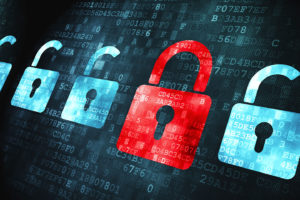 “If you have a credit report, there’s a good chance that you’re one of 143 million American consumers whose sensitive personal information was exposed in a data breach at Equifax, one of the nation’s three major credit reporting agencies,” according to the Federal Trade Commission’s consumer information titled “The Equifax Data Breach: What to Do.” https://www.consumer.ftc.gov/blog/2017/09/equifax-data-breach-what-do
“If you have a credit report, there’s a good chance that you’re one of 143 million American consumers whose sensitive personal information was exposed in a data breach at Equifax, one of the nation’s three major credit reporting agencies,” according to the Federal Trade Commission’s consumer information titled “The Equifax Data Breach: What to Do.” https://www.consumer.ftc.gov/blog/2017/09/equifax-data-breach-what-do
They recommend that you get the latest news on the Equifax Security Breach by visiting equifaxsecurity2017.com. Also you can learn whether you’ve been affected and how to enroll in complimentary credit monitoring.
“Mother of all Breaches”
This breach is worse in that others because the data stolen includes social security numbers, addresses, accounts, birth dates and possibly some driver’s license information. in addition, over 200,000 VISA account numbers was compromised.
What are the risks?
- Identity theft. Hackers could open accounts and borrow money using your personal information.
- Theft. Hackers could access your current accounts using your sensitive information. (e.g. your account numbers, your address, birth date, social security number and in some cases your driver’s license number).
What can you do to protect yourself?
- Check and review your credit card and other account statements or even better use online banking to periodically watch for suspicious activity.
- Keep your contact information up to date at your credit union and other financial institutions you use so they can easily contact you if there is suspicious activity on your account.
- Change your password now. (And change them more often in the future). Especially if you use similar passwords and security questions on multiple accounts.
- Enable two-factor authentication. The two-factor authentication protects you from someone trying to change your account passwords to get access to your account. With the two-factor authentication the financial institution will send you a text message or call to your phone with a code as a second verification step.
- Beware of phishing scams. Scammers may try to scam you by pretending to be from the affected companies. Be suspicious. Unless you initiate the communications, never give out your sensitive information over the phone or online.
- Get a free annual credit report at http://www.annualcreditreport.com or call 1-877-322-8228.
- Equifax is proposing that customers sign up for credit file monitoring and identity theft protection. It is giving free service for one year through its TrustedID Premier business, regardless of whether you’ve been impacted by the hack. You can find out if you’ve been affected and enroll at equifaxsecurity2017.com Purchasing services from the company that was hacked in the first place doesn’t seem the wisest choice.
- Finally, if you’re really worried consider freezing your personal credit file. This prevents your credit report from being accessed. Unfortunately however, this makes it almost impossible for you to get future loans without first unfreezing your file.
Of course, most financial institutions including the National JACL Credit Union, are also stepping up security measures. Unauthorized withdrawals cost us all money. Together, with a little due diligence, we can stop this nonsense.
